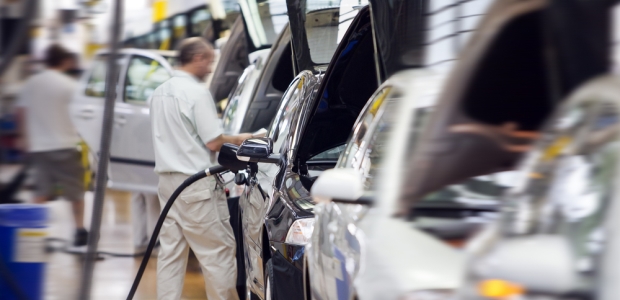
EPA Scrapping GHG Emissions Rules for Cars, Light Trucks
He said EPA is beginning a joint process with the National Highway Traffic Safety Administration to develop a notice and comment rulemaking to set more appropriate GHG emissions standards and Corporate Average Fuel Economy (CAFE) standards. The California Air Resources Board's chair, Mary D. Nichols, issued a statement condemning Pruitt's decision.
EPA Administrator Scott Pruitt has decided to scrap the current greenhouse gas emissions standards for cars and light trucks for model years 2022-2025. Pruitt announced April 2 that the Midterm Evaluation process for those standards is complete, and his final determination is that, in light of recent data, the current standards are not appropriate and should be revised.
He said EPA is beginning a joint process with the National Highway Traffic Safety Administration to develop a notice and comment rulemaking to set more appropriate GHG emissions standards and Corporate Average Fuel Economy (CAFE) standards.
"The Obama Administration's determination was wrong," he said. "Obama's EPA cut the Midterm Evaluation process short with politically charged expediency, made assumptions about the standards that didn't comport with reality, and set the standards too high."
Under the Clean Air Act, EPA sets national standards for vehicle tailpipe emissions of certain pollutants. A CAA waiver granted by EPA allows California to impose stricter standards for vehicle emissions of certain pollutants than federal requirements, but that California waiver is now being reexamined by EPA. "Cooperative federalism doesn't mean that one state can dictate standards for the rest of the country. EPA will set a national standard for greenhouse gas emissions that allows auto manufacturers to make cars that people both want and can afford — while still expanding environmental and safety benefits of newer cars. It is in America's best interest to have a national standard, and we look forward to partnering with all states, including California, as we work to finalize that standard," Pruitt said.
However, the California Air Resources Board's chair, Mary D. Nichols, issued a statement condemning Pruitt's decision. "This is a politically motivated effort to weaken clean vehicle standards with no documentation, evidence, or law to back up that decision. This is not a technical assessment, it is a move to demolish the nation's clean car program. EPA's action, if implemented, will worsen people's health with degraded air quality and undermine regulatory certainty for automakers," she said. "This decision takes the U.S. auto industry backward, and we will vigorously defend the existing clean vehicle standards and fight to preserve one national clean vehicle program. Meanwhile, today's decision changes nothing in California and the 12 other states with clean car rules that reduce emissions and improve gas mileage—those rules remain in place. California will not weaken its nationally accepted clean car standards, and automakers will continue to meet those higher standards, bringing better gas mileage and less pollution for everyone."